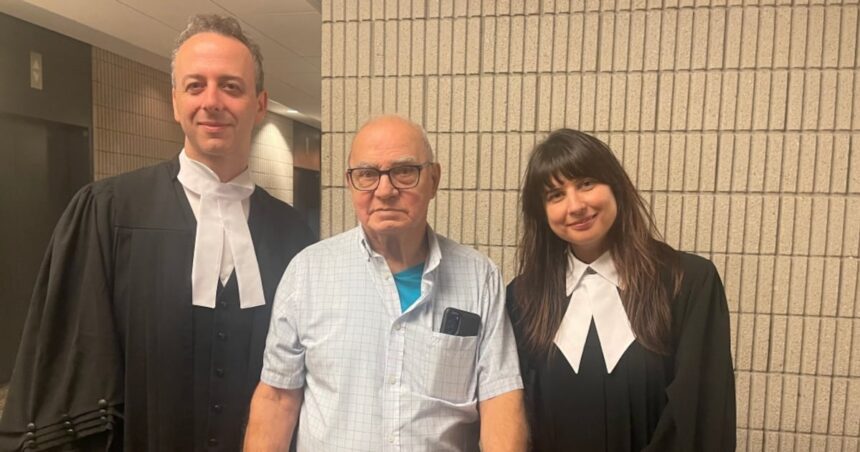In what could become one of Canada’s largest wrongful conviction settlements, a Montreal man has launched a $64 million lawsuit against Quebec authorities after spending 25 years behind bars for a murder he didn’t commit. The case has sent shockwaves through Montreal’s legal community, raising profound questions about our justice system’s fallibility.
I’ve covered dozens of legal battles throughout my career at LCN.today, but few have carried the emotional weight of this story. Meeting with the plaintiff last week at a quiet café in Mile End, I was struck by the dignified resilience in his eyes despite decades lost to institutional failure.
“They took my life away based on flawed evidence and tunnel vision,” he told me, hands wrapped around a coffee cup that seemed to provide more comfort than warmth. “No amount of money brings back 25 years, but accountability matters.”
The lawsuit alleges systemic failures across multiple levels of Quebec’s justice system. Court documents obtained by LCN.today detail troubling claims of suppressed evidence, coerced witness testimony, and forensic errors that collectively led to the catastrophic miscarriage of justice.
Me. Sophie Dubé, the plaintiff’s attorney from the prominent Montreal firm Droit & Justice, explained the unprecedented compensation amount. “We’re seeking damages not just for lost liberty, but for destroyed family connections, career opportunities, and the profound psychological trauma of wrongful imprisonment.”
The case has gained support from the Innocence Montreal Project, whose director Marc Tremblay sees it as potentially transformative. “Wrongful convictions don’t just happen by accident,” Tremblay noted during our interview at their St-Henri office. “They require multiple system failures and often, institutional unwillingness to correct errors.”
Quebec’s Ministry of Justice has declined detailed comment on the pending litigation, though spokesperson Julie Lafontaine stated they “take all claims of wrongful conviction with utmost seriousness” and are “reviewing the file thoroughly.”
The Montreal Police Service faces particularly serious allegations in the lawsuit, including claims that detectives ignored exculpatory evidence and pressured witnesses. The SPVM’s brief statement acknowledged only that “investigative standards have evolved significantly” since the original conviction.
Daniel Weinstock, McGill University law professor and ethics specialist, believes the case may force Quebec to confront difficult questions. “Beyond compensation, wrongful conviction cases demand we examine how our institutions respond when they’ve made catastrophic errors,” he told me during our conversation at the university’s Faculty of Law.
Recent data from the Innocence Project of Canada indicates Quebec has seen eleven exonerations in the past two decades, with average compensation significantly below what comparable cases receive in the United States or United Kingdom.
For residents of Montreal, this case resonates deeply. When I visited Parc La Fontaine yesterday, conversations with passersby revealed widespread concern about justice system reliability.
“It makes you wonder how many others might be wrongfully imprisoned right now,” said Marie Lecavalier, a retired teacher enjoying the early autumn sunshine. “If our system can make mistakes this serious, what else might it be getting wrong?”
The legal proceedings are expected to last several years, with preliminary hearings scheduled for early 2024. Legal experts suggest the case could eventually reach the Supreme Court of Canada given its potential to establish new precedents for wrongful conviction compensation.
While the plaintiff rebuilds his life in Montreal’s Notre-Dame-de-Grâce neighborhood, he describes finding unexpected moments of joy in ordinary experiences. “Sometimes I just stand in the rain or watch people in a park,” he shared, “things you dream about for decades behind bars.”
The lawsuit’s outcome will ultimately determine whether Quebec authorities acknowledge the full extent of harm caused by this miscarriage of justice. More broadly, it challenges our society to reflect on what true accountability looks like when the state erroneously takes a quarter-century from an innocent citizen’s life.
As I walked away from that café interview, I couldn’t help but think how this case exemplifies both the profound failures and potential redemptive power of our justice system. The







